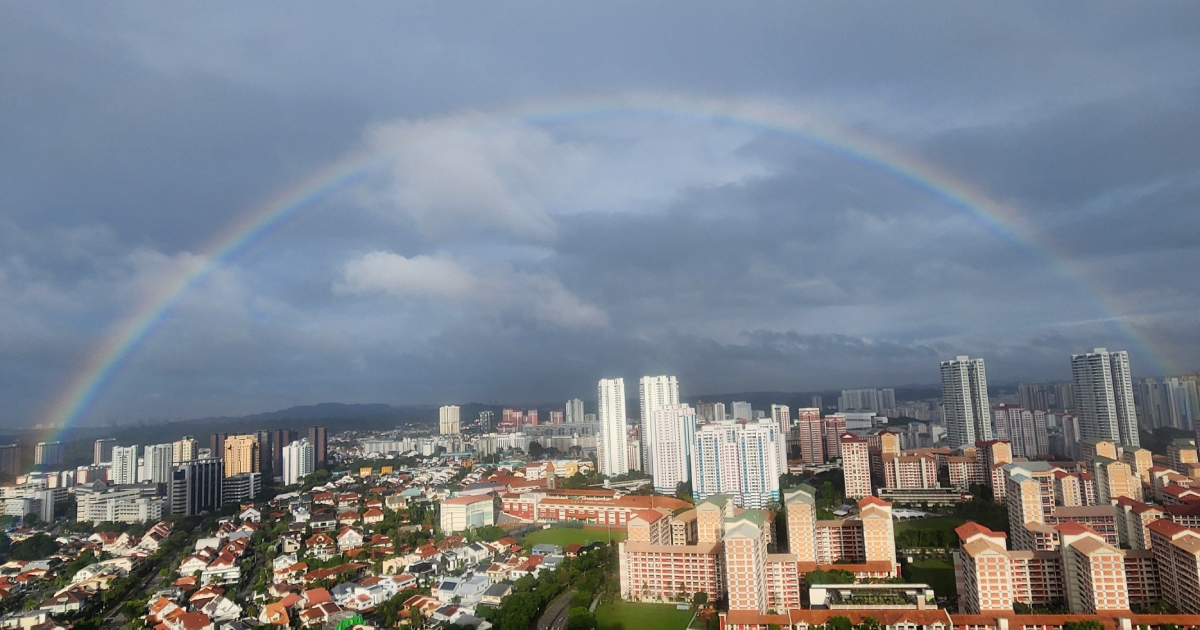S'pore passes new law to protect workers from workplace discrimination
The new law empowers the government to take action against errant employers.

Jobseekers and workers in Singapore will enjoy greater protection against workplace discrimination under the new legislation, which could be implemented as early as 2026.
The workplace fairness bill, passed in parliament on Jan. 8, also empowers authorities to take action against errant employers who persist in discriminatory practices.
The government plans to implement the new legislation sometime in 2026 or 2027, Minister for Manpower Tan See Leng said in his speech on the bill.
Tan said workplace discrimination complaints are currently addressed under the Tripartite Guidelines on Fair Employment Practices (TGFEP) by the Tripartite Alliance for Fair and Progressive Employment Practices (TAFEP).
While this framework has worked well thus far, Tan said that with an ageing population and complementary foreign workforce in Singapore, a "level playing field" is needed to prevent discriminatory practices.
Five protected characteristics under new bill
Tan said the new bill would strengthen protections for jobseekers and employees against discrimination, provide grievance-handling processes for such matters, and provide authorities with calibrated levers to deal with the small number of bad employers who persist in discriminatory practices.
The new bill prohibits employers from making an adverse employment decision on the grounds of any of five protected characteristics:
- Age
- Nationality
- Sex, marital status, pregnancy and caregiving responsibilities
- Race, religion and language
- Disability and mental health condition
Such decisions include choosing not to hire someone, giving them a poor performance appraisal, denying a promotion or training opportunity, or firing them.
The bill also prohibits company policies or job advertisements that discriminate on such characteristics.
Tan explained that the five characteristics cover the more frequently encountered forms of workplace discrimination, which together account for more than 95 per cent of discrimination complaints received by TAFEP and the Ministry of Manpower (MOM).
He said the bill would complement the TGFEP, which will continue to cover all forms of workplace discrimination.
"So I would like to reiterate to all employees:
If you are facing workplace discrimination, MOM and TAFEP will support you.
You will not be turned away simply because it is not a protected characteristic.
The TGFEP will continue to cover all forms of workplace discrimination."
Grievance-handling processes
The bill will also require employers to put in place grievance-handling processes to manage workplace discrimination, including inquiring into the grievance received from the employee, reviewing it, and informing the employee of the result.
Employers will be required to protect the employees' confidentiality to the greatest extent possible, and they will be prohibited from retaliating against those who file complaints and claims.
"The message we want to send out is clear: we will not hesitate to take action against employers that retaliate against those who raise valid grievances, and employees should, therefore, feel safe to bring them up," Tan said.
If the employer and employees are unable to settle their differences within the firm itself, employees can make a private employment claim under the bill.
The bill also empowers the government to take action against errant employers.
Employers committing less severe breaches may be directed to attend educational workshops, or face administrative financial penalties imposed by MOM.
For more severe breaches, MOM can bring the offenders to court to recommend heavier civil penalties.
Set to be implemented in 2026 or 2027
Tan said that the workplace fairness bill is the first of two.
The first bill covers the substantive rights and obligations under the legislation and was introduced early so that employers would have more time to prepare themselves for the new law.
The second bill will pertain to how private employment claims can be made for workplace discrimination.
It will take authorities some time to work through the complex and novel details of how such claims are adjudicated, Tan noted.
If both bills are passed, the government plans to implement the workplace fairness legislation sometime in 2026 or 2027, Tan said.
What if I have genuine business needs?
On how the workplace fairness bill provides for genuine business needs, Tan raised some examples.
Employers can consider if job seekers are fluent in a specific language for an interpreter role or if an officer diagnosed with depression can carry firearms, given public safety concerns.
Bus companies may choose to only hire trainees above 21 years old as that is the age required by law to obtain a driver's vocational licence.
"So in designing these flexibilities, we also want to assure employers that they will not run afoul of the law if they need to make employment decisions based on requirements set by the government, such as those involving public safety or national security", Tan said.
Striking the right balance
Tan noted that the bill was the result of cooperation between tripartite partners, namely the government, the National Trades Union Congress (NTUC) and the Singapore National Employers Federation (SNEF).
It took into account studies on anti-discrimination laws in other countries and the Singapore labour movement's feedback, such as through the "Every Worker Matters" conversation.
More than 2000 individuals from all walks of life, including workers, employers, HR and legal professionals, were consulted in more than 70 in-person engagements, Tan said.
While Tan said he was confident the bill would "strike the right balance" between different stakeholders, he emphasised that it is "not a panacea".
"Rather, it is an additional layer of protection that allows us to take certain actions against the more frequently encountered forms of workplace discrimination where there's societal consensus today. It is a measured approach that seeks to preserve our current workplace norms and guard against divisions in our workplaces and society."
Bill does not cover all forms of discrimination
A seven-hour debate on the bill, starting on Jan. 7 and adjourned till the next day, saw 28 MPs speaking on the matter.
Some MPs asked about cases that are not covered by the bill, including discrimination on the basis of sexual orientation, discrimination by association with individuals with a protected characteristic, or indirect discrimination, such as in the case of policies that apply to everyone but disadvantaged certain groups of people.
Tan acknowledged MPs' concerns that the bill in its current state does not cover all forms of discrimination and emphasised that it is "just the start" and further efforts and improvements will be made over time.
Tan added that TAFEP will track, analyze and share information on the complaints and cases received and resolved under the bill and TGFEP, allowing authorities to discuss and decide on the next moves more meaningfully.
The workplace legislation bill was passed in parliament on Jan. 8.

Related
Top image from Canva
MORE STORIES





















